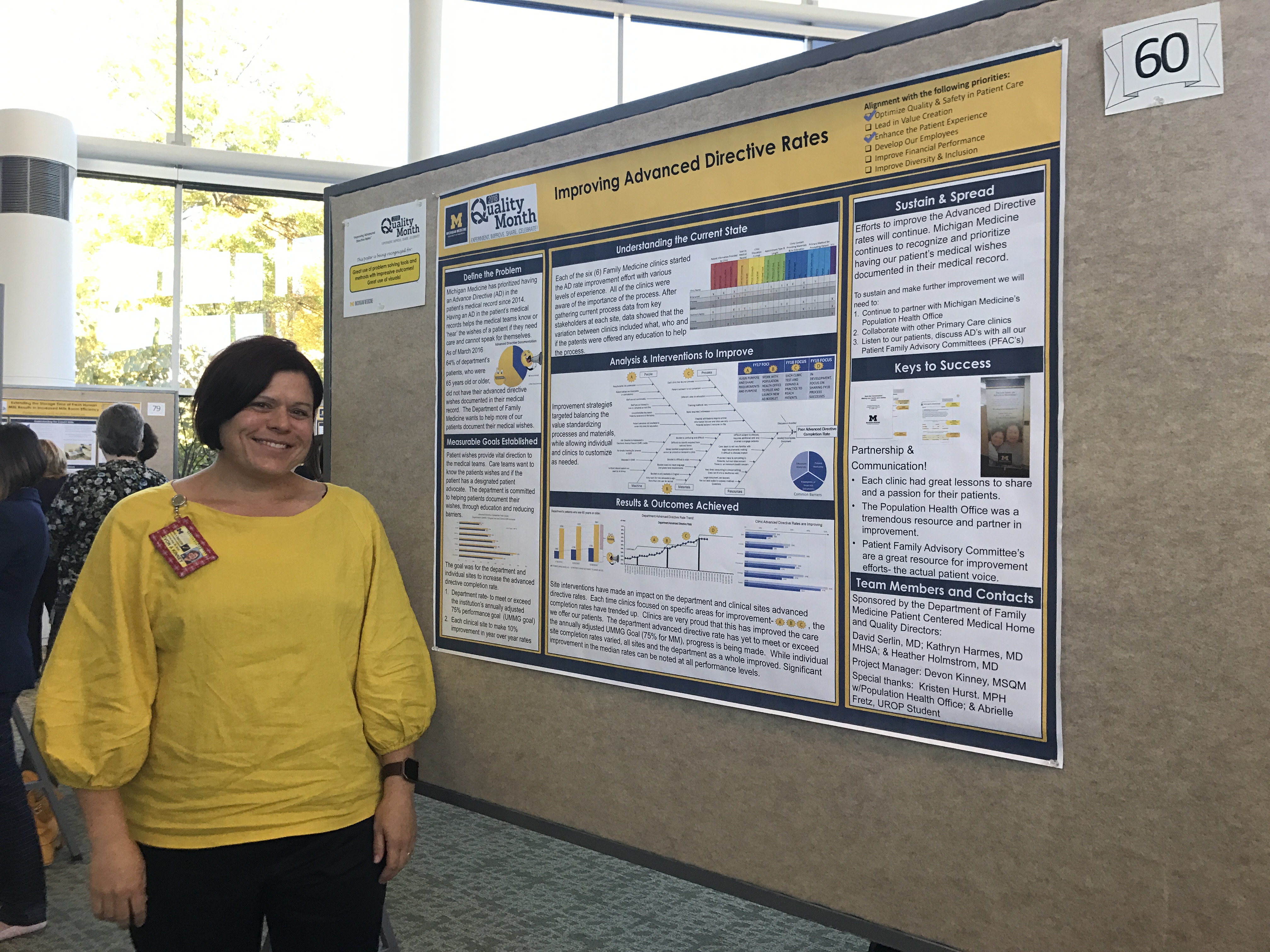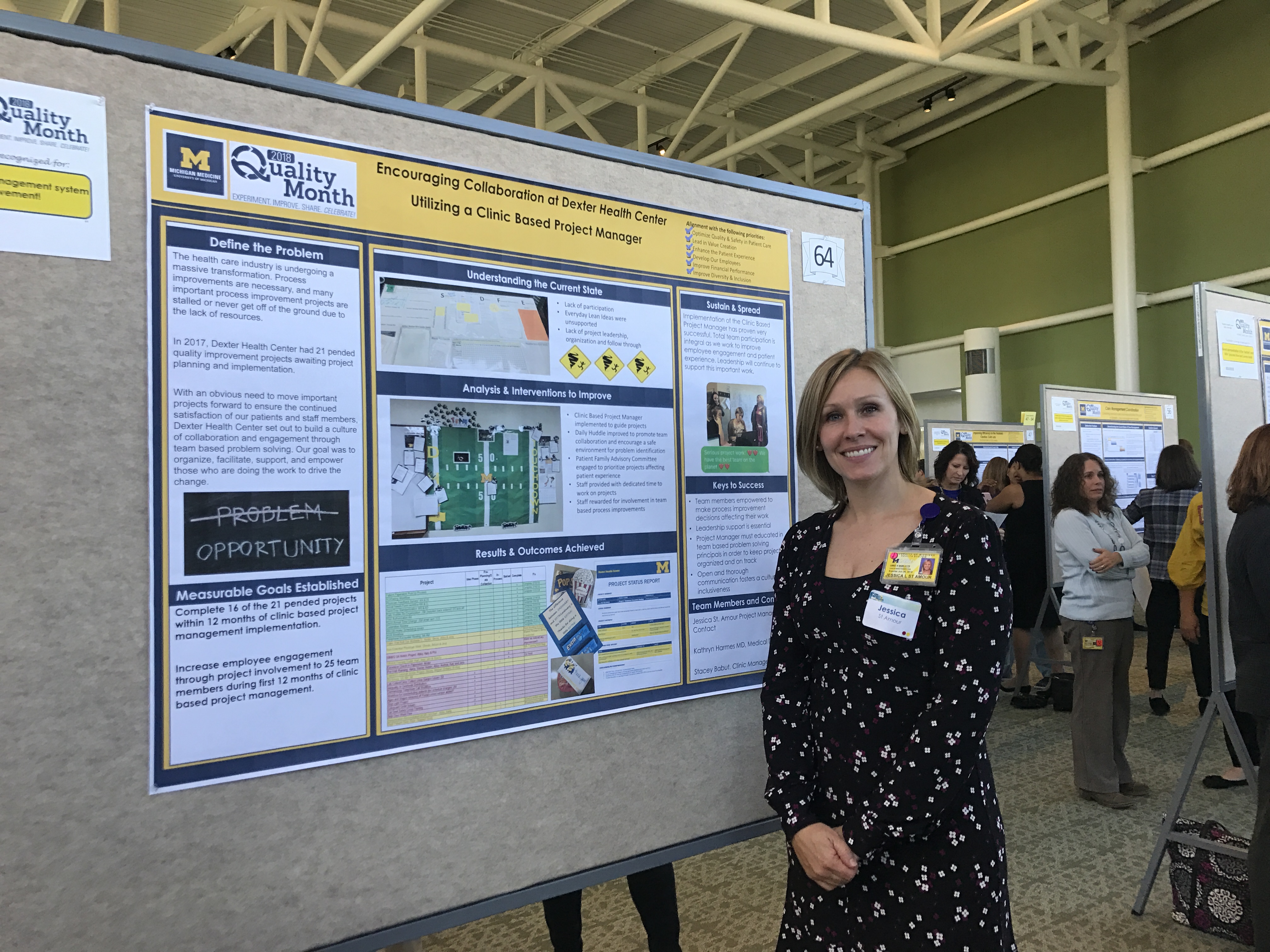
Family medicine faculty and staff are leaders in quality improvement and frequently have work featured in the poster session, which offers an opportunity to positively impact the work of others. This year the Department members developed two posters
Improving Advanced Directive Rates
By David C. Serlin, M.D., assistant professor and associate chair for clinical programs; Kathryn M. Harmes, M.D., M.H.S.A., assistant professor and associate chair for population medicine; Heather Holmstrom, M.D., former assistant professor; Devon Kinney, M.S.Q.M., project manager; Kristen Hurst, M.P.H., senior project manager; and Abrielle Fretz, UROP student.

For several years Michigan Medicine has prioritized having an advance directive in patients’ medical record, yet as of March 2016 64% of family medicine patients, who were 65 years old or older, did not have their advanced directive wishes documented in their medical record. The team sought to improve this metric at each clinical site. Their goals was to meet or exceed the Institution’s 75% performance goal and for each clinical site to make at least a 10% improvement in year over year rates.
The team’s improvement strategies included aligning purpose and sharing requirement across clinic sites, utilizing Michigan Medicine’s Population Health Office to pilot and launch a new Advance Directives document, allow each clinic to test, expand and eventually share a practice to communicate information.
These site interventions have made an impact on the Department advance directive rates. Though the Department rate has yet to meet or exceed the 75% goal, progress is being made. While individual site completion rates varied, all sites and the Department as a whole improved. Significant improvement in the median rates can be noted at all performance levels.
Encouraging Collaboration at Dexter Health Center: Utilizing a Clinic Based Project Manager
by: Kathryn M. Harmes, M.D., M.H.S.A., assistant professor and associate chair for population medicine; Stacey Babut, health center manager; Jessica St. Amour, project manager

Due to massive transformations in the field and an Institutional push for process improvements, Dexter Health Center (DHC) had a large number of project ideas for quality improvement. However, a lack of resources and project management, many important process improvement projects stalled or never get off of the In 2017, DHC had 21 pended quality improvement projects awaiting project planning and implementation.
To rectify this, DHC hired a clinic-based project manager whose goal was to build a culture of collaboration and engagement through team-based problem solving, and to organize, facilitate, support, and empower those who are doing the work to drive the change. Beyond that, they improved the daily huddle to promote team collaboration and openness, engaged their Patient Family Advisory Committee to prioritize projects, provided staff with dedicated project time and rewarded staff for project involvement.
Since implementation, DHC has completed 12 projects. Additionally, seven are in progress and ten are being formulated. Team participation has increased dramatically and leadership is encouraged to continue supporting this quality improvement effort.


